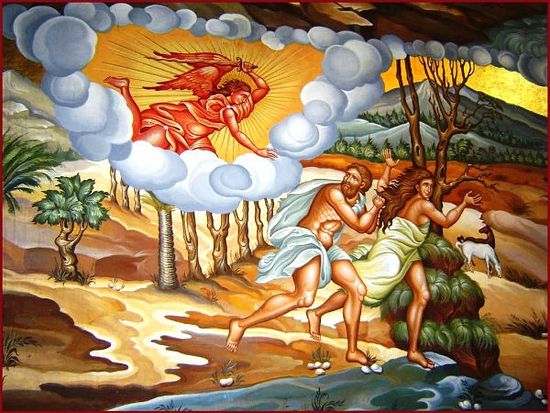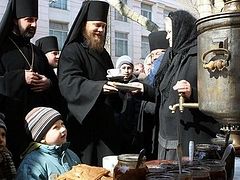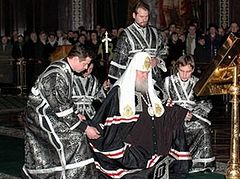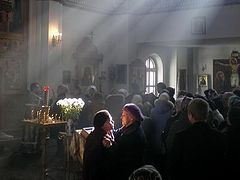Source: Silouan
March 13, 2016
Sunday was the Sunday of the exile from Paradise. We’re meant to keep fresh in our minds the regret and nostalgia for a homeland from which our sins have made us exiles and refugees.
In Genesis 2 we see man living in free and perfect fellowship with his Creator. But in chapter 3, sin makes man incapable of living without a barrier between him and God: “I heard thy voice in the garden, and I was afraid, because I was naked; and I hid myself.” Man is walled off from face-to-face fellowship with his Lord, because man’s passions make him a stranger to the character of God.
Jeremiah, in exile, writes in Ps 136 (137) “By the waters of Babylon…” in an effort to keep fresh in himself and his generation the pain of separation from a homeland many have never even seen. “How shall we sing the Lord’s song in a strange land? If I forget thee, O Jerusalem, let my right hand be forgotten. Let my tongue cleave to my throat, if I remember thee not, If I set not Jerusalem above all other…”
Paradise is the presence of God, the place of union with the Creator – whether in Eden, or in the heavens for the Thief (“Today shalt thou be with me in paradise”) or on the renewed earth in the Resurrection. In prayer, we are taught to bring the mind down into the heart, where God dwells; this Garden is walled off because of our passions, but by purification and illumination – and with much tribulation (Ac 14:22) – we may enter again into the joy of the Lord.
Saint Ephrem the Syrian writes:
The kingdom of heaven is within you (Luke 17:21). Insofar as the Son of God dwells in you, the kingdom of heaven lies within you also. Here within are the riches of heaven, if you desire them. Here, O sinner, is the kingdom of God within you. Enter into yourself, seek more eagerly and you will find it without great travail. Outside you is death, and the door to death is sin. Enter within yourself and remain in your heart, for there is God.
— Quoted in The Art of Prayer
But “the kingdom of heaven suffereth violence, and the violent take it by force” (Mt 11:12). We will not enter into paradise without a struggle. This is why Jeremiah in the Psalm, and Saitn Silouan in his “Lament for Adam,” intentionally keep alive in themselves the pain of loss and a “hunger and thirst for righteousness” (Mt 5:6), to draw them back, as often as necessary, to the remembrance of God – to satisfaction with nothing less than the Pearl that costs everything (cf. Mt 13:45-46).




